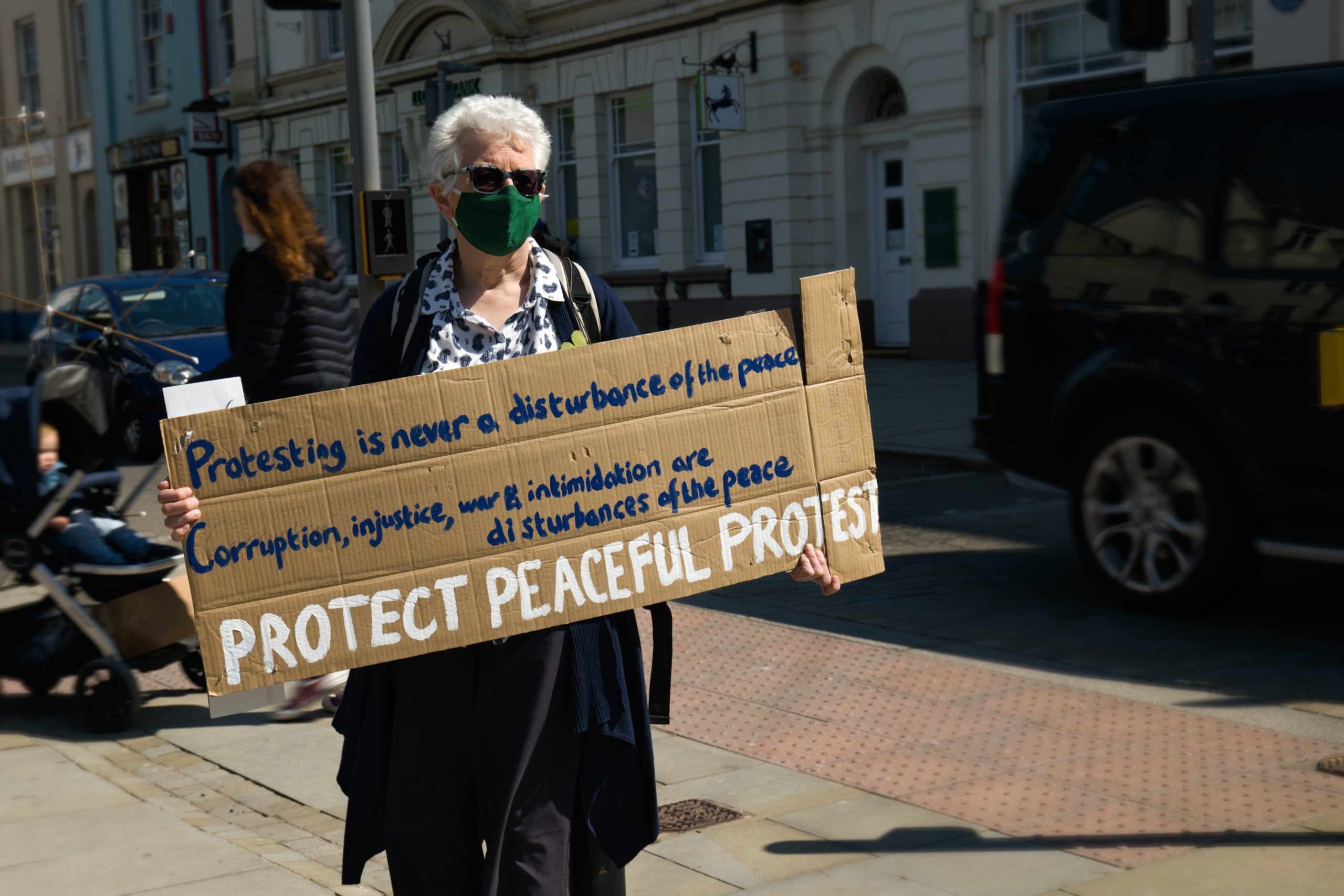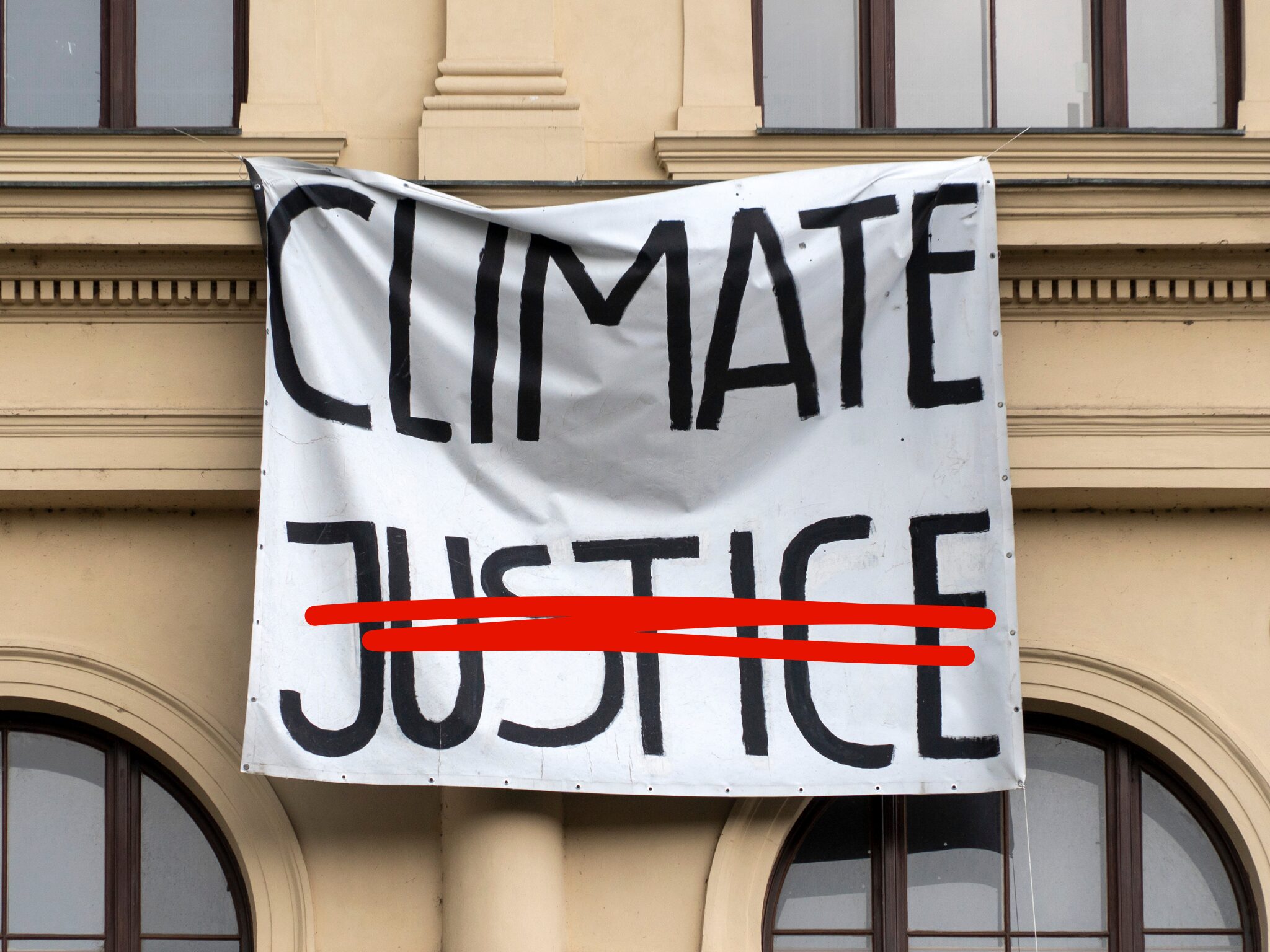Consent Defence: UK Climate Activists Lose ‘Last Remaining’ Protection for Criminal Damage During Protests
6 Mins Read
This week, climate protestors in England and Wales prosecuted for criminal damage lost the right to use the ‘consent defence’, which has been available to them since 1971 and led to a series of acquittals in the past.
Four years ago, campaigners from the climate activist group Extinction Rebellion threw pink paint over the buildings of Christian Aid, Amnesty International, Greenpeace and Friends of Earth in London. A month later, environmental protestors sprayed paint over the headquarters of the Conservative, Labour, Liberal Democrat and Green Parties. In both instances, most of the protestors were cleared of criminal charges.
A year later, Extinction Rebellion took chisels and hammers to the windows of HDFC Bank’s head office in London, causing £500,000 worth of criminal damage and putting up stickers reading: “£80 billion into fossil fuels in the last 5 years.” But in late 2023, these activists were also acquitted.
In all these cases, the accused used a UK statute that has been around since 1971, the Criminal Damage Act. Known as the ‘consent defence’, it involves defendants arguing that they honestly believed that the owner of a property would have consented to their actions had they known why they had been taken.
It has been described as the “last remaining line of legal defence” for climate activists who have been charged with property damage. But on Monday, this consent defence was effectively taken away from them, after a UK court of appeal said the “beliefs and motivation” of defendants don’t comprise a lawful excuse for property damage.
Defendants can’t use climate change facts as evidence

The decision stemmed from the not-guilty verdict of a defendant, who cannot be named for legal reasons, in a climate trial last year. But attorney general Victoria Prentis lodged an appeal on a point of law to the court of appeals to argue that consent defence shouldn’t be available to climate activists, as part of a broader government effort to curb disruptive protests over climate change. She said she wanted “clarity on the law as guidance for future cases” involving climate protesters.
Speaking to the Guardian, the defendant said: “I was found not guilty by a jury after a long trial. I feel like the attorney general is trying to retrospectively challenge the jury’s decision. It feels like an assault on the rights of juries to acquit someone having listened to the evidence.”
But this week, three judges in the appeals court ruled in Prentis’s favour, noting that “the political or philosophical beliefs” and the “reasoning and wider motivation” are “too remote” to be classified as a “lawful excuse”. In an even bigger blow, it added that evidence from defendants about the facts or effects of climate change would now be inadmissible.
“The court holds that the circumstances of the damage have to be linked directly to the damage. They might include, for example, the time, place and extent of the damage. In a protest case, they would include the fact that the damage was caused as part of a protest,” said Sue Carr, the lady chief justice of England and Wales. “But the circumstances would not include the political or philosophical beliefs of the person causing the damage. They would not include the reasoning or wider motivation of the defendant. Those matters are too remote from the damage.”
Prentis welcomed the verdict, claiming it “will ensure consistency and give judges much-needed clarity” in this area of law. “Climate change is an important issue and while the right to protest must be protected, it does not give a right to cause serious criminal damage no matter how strongly held a belief is,” she said.
While the ruling doesn’t impact the outcome of previous trials, it will affect the defences available to climate protestors in future cases.
UN official lambasts UK crackdown on climate protests

The verdict is a big blow to climate activists and groups like Extinction Rebellion, Just Stop Oil and Insulate Britain, removing the final defence available to people who spray some paint on buildings, demonstrate on the streets, or sit peacefully in public protest – all in an effort to raise the alarm about the climate emergency and urge action.
But it’s hardly a surprise, given that the UK has been clamping down on protestors for a good while now. Prentis’ predecessor, Suella Braverman had similarly turned to the court of appeal after Conservatives were vexed over the acquittal of four people who toppled the statue of Edward Colston – a slave trader – in Bristol. The court of appeal adjudged that protestors can’t rely on the European convention of human rights as a defence against criminal damage.
That was in December 2022, and sparked a series of restrictions imposed upon defendants across the country over the next year, including both people charged with criminal damage and less serious offences. For example, peaceful, non-violent protestors on trial were forbidden from mentioning the words ‘climate change’, ‘fuel poverty’ or the civil rights movement when on trial for public nuisance – essentially, they were found in contempt of court and jailed trying to explain why they were protesting.
Another instance showcasing the UK’s crackdown on climate protests involved a Just Stop Oil protestor who was jailed for six months for participating in a peaceful slow march protest on a London road, becoming the first to be found guilty under the Public Order Act 2023, which is said to make anyone walking on a road subject to prosecution for “interference with key national infrastructure”. Similarly, two protestors were jailed for over two years and seven months for climbing the Queen Elizabeth II bridge to unveil a Just Stop Oil banner and forcing police to stop traffic.
“When will the legal profession and the judiciary wake up to what’s happening? It must be obvious to every serious observer that British law is being instrumentalised, on behalf of the fossil fuel industry, to silence and repress those taking action to confront the extreme danger from climate breakdown,” said Tim Crosland of the climate charity Plan B.
The UK’s efforts to suppress climate protests are deeply concerning, especially when you realise people aren’t allowed to even mention the term ‘climate change’ or its effects – those that we’re seeing happen every single day – in their defence, let alone them being admissible as a valid defence. Michel Forst, the UN special rapporteur for environmental defenders, outlined that he was “seriously concerned by these regressive new laws” in January.
“It is very difficult to understand what could justify denying the jury the opportunity to hear the reason for the defendant’s action, and how a jury could reach a properly informed decision without hearing it, in particular at the time of environmental defenders’ peaceful but ever more urgent calls for the government to take pressing action for the climate,” he said.
Crosland added: “If the urgent interventions from the UN and civil society organisations are not setting warning lights flashing, what will it take? With the established courts failing to discharge their basic function of protecting the British public from the abuse of power, it’s inevitable that others will step up.”




